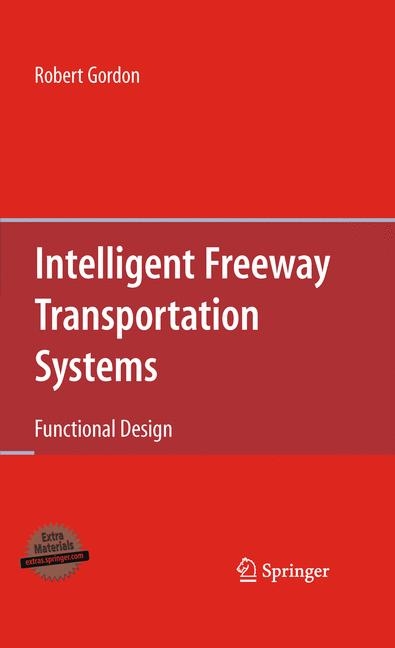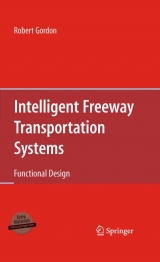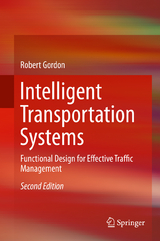Intelligent Freeway Transportation Systems
Functional Design
Seiten
2009
|
1st ed. 2010. Corr. 3rd printing 2010
Springer-Verlag New York Inc.
978-1-4419-0732-5 (ISBN)
Springer-Verlag New York Inc.
978-1-4419-0732-5 (ISBN)
- Titel erscheint in neuer Auflage
- Artikel merken
Zu diesem Artikel existiert eine Nachauflage
Focusing on the efficient use of resources in the design of intelligent transportation systems (ITS), this book examines in depth the principles of top-down design, and offers guidance on developing and evaluating functional and cost-effective alternatives.
Intelligent Freeway Transportation Systems: Functional Design focuses on the efficient use of resources in the design of ITS. It discusses the principles of top down design starting with objectives and requirements, and provides guidance for the development and evaluation of functional design alternatives according to cost effectiveness principles. It shows how transportation planning principles such as Wardrop's Laws and traffic diversion principles relate to functional ITS device selections and equipment locations. Methodologies for translating objectives to functional device types are provided. Application factors to identify device deployment densities (e.g. number of detectors per mile) as a function of traffic conditions are provided, as are evaluation models for evaluating the benefits of design alternatives based on traffic conditions. Design guidance and benefits evaluation include the following functions: (1) Non-recurrent congestion - Improvement of incident clearance time, (2) Non recurrent congestion - Incident information to motorists, (3) Recurrent congestion - Information to motorists, (4) Ramp metering, (5) Motorist service patrols.
Intelligent Freeway Transportation Systems: Functional Design focuses on the efficient use of resources in the design of ITS. It discusses the principles of top down design starting with objectives and requirements, and provides guidance for the development and evaluation of functional design alternatives according to cost effectiveness principles. It shows how transportation planning principles such as Wardrop's Laws and traffic diversion principles relate to functional ITS device selections and equipment locations. Methodologies for translating objectives to functional device types are provided. Application factors to identify device deployment densities (e.g. number of detectors per mile) as a function of traffic conditions are provided, as are evaluation models for evaluating the benefits of design alternatives based on traffic conditions. Design guidance and benefits evaluation include the following functions: (1) Non-recurrent congestion - Improvement of incident clearance time, (2) Non recurrent congestion - Incident information to motorists, (3) Recurrent congestion - Information to motorists, (4) Ramp metering, (5) Motorist service patrols.
Cost Effective Design Processes.- Functional ITS Design Issues.- Non-Recurrent Congestion: Improvement of Time to Clear Incidents.- Nonrecurrent Congestion: Incident Information to Motorists.- Recurrent Congestion - Information to Motorists.- Ramp Metering.- Communications for ITS.- Transportation Management Centers.- Evaluation of System Design and Operation.- Compact Disk.
| Zusatzinfo | 43 black & white tables, biography |
|---|---|
| Verlagsort | New York, NY |
| Sprache | englisch |
| Maße | 156 x 234 mm |
| Gewicht | 504 g |
| Themenwelt | Naturwissenschaften ► Geowissenschaften ► Geografie / Kartografie |
| Technik ► Fahrzeugbau / Schiffbau | |
| Technik ► Maschinenbau | |
| ISBN-10 | 1-4419-0732-7 / 1441907327 |
| ISBN-13 | 978-1-4419-0732-5 / 9781441907325 |
| Zustand | Neuware |
| Informationen gemäß Produktsicherheitsverordnung (GPSR) | |
| Haben Sie eine Frage zum Produkt? |
Mehr entdecken
aus dem Bereich
aus dem Bereich
über eine faszinierende Welt zwischen Wasser und Land und warum sie …
Buch | Hardcover (2023)
dtv (Verlag)
24,00 €
Eine Einführung in die spezielle Mineralogie, Petrologie und …
Buch | Hardcover (2022)
Springer Spektrum (Verlag)
59,99 €





